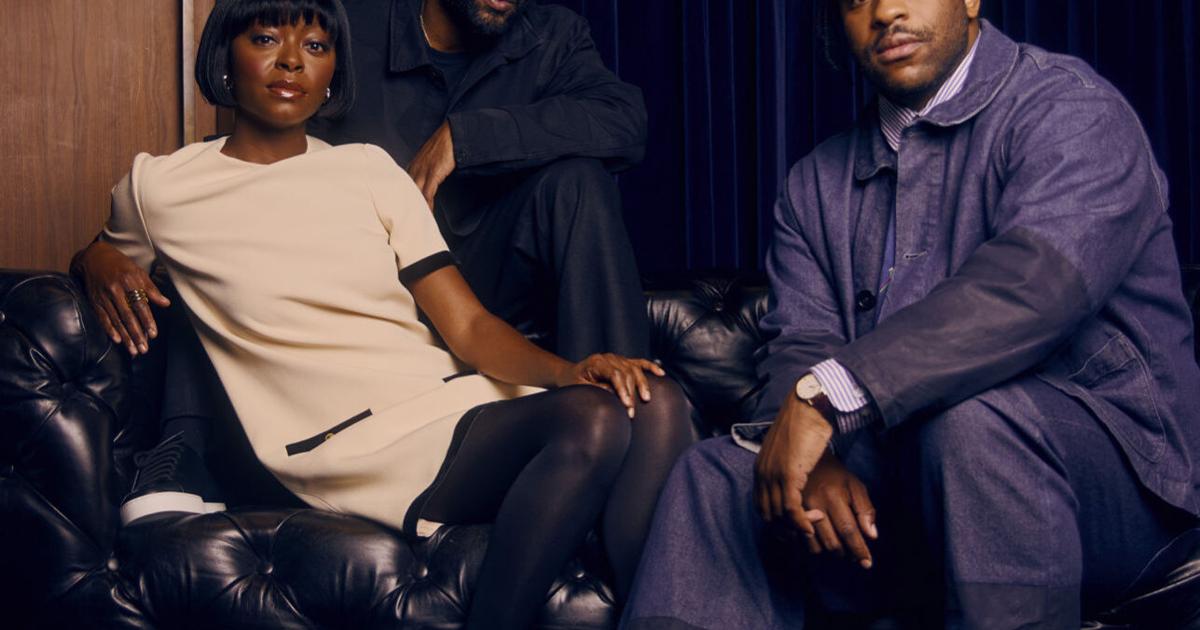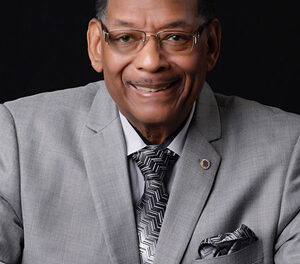
It didn’t take long for Denzel Washington to realize they didn’t need him.
The Oscar winner has made it his mission to bring the works of August Wilson, the great American playwright whose work elevated the everyday lives of Black folks, to the big screen. But the team shooting the third such adaptation — “The Piano Lesson” — knew what they were doing. Of course they did. Most of them had learned by watching him.
The actor’s son Malcolm directed “The Piano Lesson.” His other son, actor John David, stars in the film alongside actress Danielle Deadwyler (“Till”) and Samuel L. Jackson, a noted Wilsonian. His daughter Katia is producing the film alongside the elder Washington and his frequent producing partner, Todd Black. Completing the family tree: Denzel’s other daughter, Olivia, and his wife, veteran actress Pauletta Washington, both make cameos.
“‘What am I hanging around here for?’” Denzel recalled asking himself after two weeks of showing up on set in Georgia. “I went home. I was like, ‘It’s nothing for me to do around here.’ I didn’t need to stay. They were making a movie.”
They were also extending two legacies that have become intertwined.
Denzel won a Tony Award starring in the 2010 Broadway revival of Wilson’s “Fences” opposite Viola Davis. After securing the rights from the playwright’s estate to adapt Wilson’s Pittsburgh Cycle of 10 plays, he directed and starred in the 2016 film version of “Fences,” for which Davis won an Oscar. In 2020, Denzel produced “Ma Rainey’s Black Bottom,” directed by George C. Wolfe and starring Davis and Chadwick Boseman in his final movie role. Next up: “The Piano Lesson,” which opened in select theaters Friday before moving to Netflix later this month.
By now, the names Washington and Wilson have become as closely associated as Branagh and Shakespeare. Denzel has called the task of bringing Wilson’s work to the screen a “privilege and honor, responsibility and duty, and a joy.” It is also now a family affair. But letting his children captain the project — particularly Malcolm in his feature-length directorial debut — had nothing to do with stepping out on faith.
“There was more than just trust, there was proof,” Denzel said. “It’s called dailies.”
Legacy is a funny little concept, isn’t it? To have a legacy is a privilege. To maintain it a responsibility. And to be one?
Much like his producer, Malcolm shooed away the sentiment. Please don’t call it the family business.
“We think of these things so narrowly,” the 33-year-old said recently from a comfortably crowded couch in Netflix’s sleek Manhattan office. He sat next to his two stars — John David, 40, who plays Boy Willie, and Deadwyler, 42, who plays his sister, Berniece.
They struck a familial vibe, elbowing one another playfully and then handing each other tissues when needed as we moved through a winding discussion about the meaning of legacy.
“It’s the past and the present very much crashing onto each other,” Deadwyler explained. Each of them was grappling with collisions like that — as actors performing in one of Wilson’s most famous plays, as African Americans with Southern roots and, yes, as children with a famous last name.
“As Black people, we are all constantly engaging in a history,” said Malcolm, who speaks in poetic paragraphs. He considers the widest possible angle when it comes to the work he and his siblings and his parents do. Yes, the Washingtons are all artists, conceded Malcolm. But aren’t we all just human beings trying to make sense of the past?
In fact, that exact question is at the core of “The Piano Lesson.”
Set in 1936, it’s a family drama about generational trauma. At the story’s center are Boy Willie and Berniece, who spar over what to do with the family’s heirloom piano, carved with the faces of their enslaved ancestors and literally bought with their lives.
The widowed Berniece has brought the piano — a physical connection to her forebears — up north to sit untouched in the Pittsburgh home she shares with her uncle and young daughter. Boy Willie arrives from down south to persuade his sister to sell the instrument, which he sees as his inheritance, to help him buy the land their family has worked on for generations. There are good arguments and reopened wounds on both sides. Eventually the past the family has been avoiding arrives in the form of a ghost.
Summoning ghosts — the lingering lives of ancestors — is a way of describing what Wilson did. The playwright often praised as the Black Shakespeare died in 2005 at age 60, having completed his great Century Cycle. Those 10 plays, one for each decade of the 20th century, are mostly set in the Hill District, a historically Black neighborhood of Pittsburgh where Wilson grew up, but they take in a longer history of migrations and travails. They are dedicated to, and contain, the color and contours of Black life in America.
The Washingtons and Deadwyler all said they were changed after witnessing some part of the Pittsburgh Cycle onstage.
Deadwyler is a native of Atlanta who got her start on the stage and has enjoyed a chameleonlike career, appearing in the western “The Harder They Fall” and the apocalyptic miniseries “Station Eleven.” She first saw Wilson’s “Seven Guitars,” about a troubled bluesman, on Broadway in 1996 when she was around 13. She locked into a world (1948 Pittsburgh, in this case) brought to life by actors who looked and sounded like people she loved.
“That’s when you go, ‘My tongue can move in this way. I want to speak in this way,’” she said. “You want to do it like that. That’s the pinnacle of the practice.”
John David watched his father in 2010 in “Fences” on Broadway and his mother in “Two Trains Running” in Atlanta in 2013.
The former professional football player wasn’t calling himself an actor out loud yet. But the voices of Wilson’s work stuck with him. He carried them to HB Studio, the performing arts training studio in New York. Performing Wilson’s plays in workshops, John David felt closer to the text.
“Then once you get into the work, you actually have to dig even deeper. You actually have to get really personal to activate this poetry,” he said.
For Malcolm, it was seeing his mother in “Two Trains Running,” set in the ’60s amid the Civil Rights Movement, and realizing that the theatah wasn’t a rarefied or stuffy experience, at least not in Wilson’s hands. It could be funny; it could be entertaining.
“You know, you hear the Black Shakespeare thing and you’re like, ‘Oh, my God. Am I going to understand it?’” Malcolm said. But Wilson makes the colloquial sublime. You have immediate access. You hear your family’s kitchen conversation. You’re drawn in by familiar language and welcoming laughter. Then, something will unsettle you. Finally, a lesson will emerge — or simply a question.
“August’s works are such complete experiences,” Malcolm said. “When you watch them, they kind of lull you in. That was the experience I wanted audiences to have. You think it’s far away from you, but somewhere in the middle you realize that your story is in it, too.”
Like Wilson’s play, Malcolm’s “The Piano Lesson” is, in part, a ghost story. Spirits, phantoms, haints — those are a kind of legacy, too, as real as an heirloom piano. As they riff, the trio consider the question: Do they believe in ghosts?
“Yes,” said John David without hesitation, as if the answer were waiting behind bars. For the characters in “The Piano Lesson,” the true question is not whether ghosts exist but whether we can live with them. For a project that confronts the past (stolen lives, loves lost) in nearly every scene, a belief in the otherworldly couldn’t hurt, right?
“I believe in a presence,” John David continued, meaning it quite literally. He often wakes up long before dawn with the weird feeling that someone or something is staring at him. “It’s terrifying,” he said, but he doesn’t interrogate the presence’s meaning.
“Sometimes I’ve been in a zone and when I’m performing, I don’t know if it’s ghosts, but a spirituality or a supernatural thing has sort of taken over,” John David said. “And I welcome it. I don’t know if that’s like a ghost thing, but it’s definitely something supernatural.”
When it comes to spirits, Deadwyler just doesn’t mess around with them. “It’s not even ‘I believe,’ it’s ‘I don’t play with that. I’m not touching that,’” said the actress. But has she felt the supernatural swirling around her? “No doubt.”
Not long ago, Deadwyler bought a property because, she said, her ancestors told her to. It was a few months after “The Piano Lesson” had wrapped and a real estate agent friend suggested she check out some land that was off the market “just to get a feel for what was out there.” Red birds came out to greet Deadwyler when she visited. “Big deal,” she said. The fish were jumping, too. Another big deal.
“You ever seen a red dragonfly?” Deadwyler asked the group. No one had. “Nature decided to come out and welcome me that day.” Two days later, the property went back on the market. Now it’s hers. “They’re there, if we’re listening,” she said.
Were there any ghosts on set? Perhaps just the ones the artists brought with them.
If making “The Piano Lesson” was itself a kind of lesson — an exercise in working out the kinks of a family and cultural legacy — then somebody had to leave that set with something.
Malcolm and Denzel may demur when it comes to the “family business” question, but John David said “The Piano Lesson” allowed him to confront those legacies — Washington and Wilson — head-on.
“Ever since I can remember anything, I wanted to do this. It’s funny that it’s a family project and all that. The lesson is that you can do this. That this is your destiny,” said John David, who came to acting after an injury ended his football career.
His first major credit was starring as a showboating wide receiver in the HBO series “Ballers.” Soon came Spike Lee’s “BlacKkKlansman” and Christopher Nolan’s “Tenet.” Big names and big movies. But that didn’t mean he felt like he belonged, that he was also part of the legacy.
He feels his place was earned on “The Piano Lesson,” which he first performed in on Broadway in 2022. Shooting the movie, John David said, it was family friend and co-star Samuel L. Jackson who emboldened his younger castmates. “[They] basically gave us the green light that said, ‘You guys are good enough to do this. You guys got it.’”
At this point in the conversation, Deadwyler was done for. Her co-stars’ truths were getting to her; the actress had folded herself almost in half to hide tears.
“Oh, you get on my nerves,” she whispered as Malcolm handed her a tissue. Once collected, Deadwyler repeated herself loudly, for the record: “I specifically said, ‘He gets on my nerves.’”
John David was undeterred. “That’s God’s honest truth. I feel like I was born to do it because it just feels so good and so natural. There’s so much peace. There’s the clearing up of any kind of issues I’ve had before.”
That, it seemed, was what it looks and sounds like to have a legacy fulfilled.




